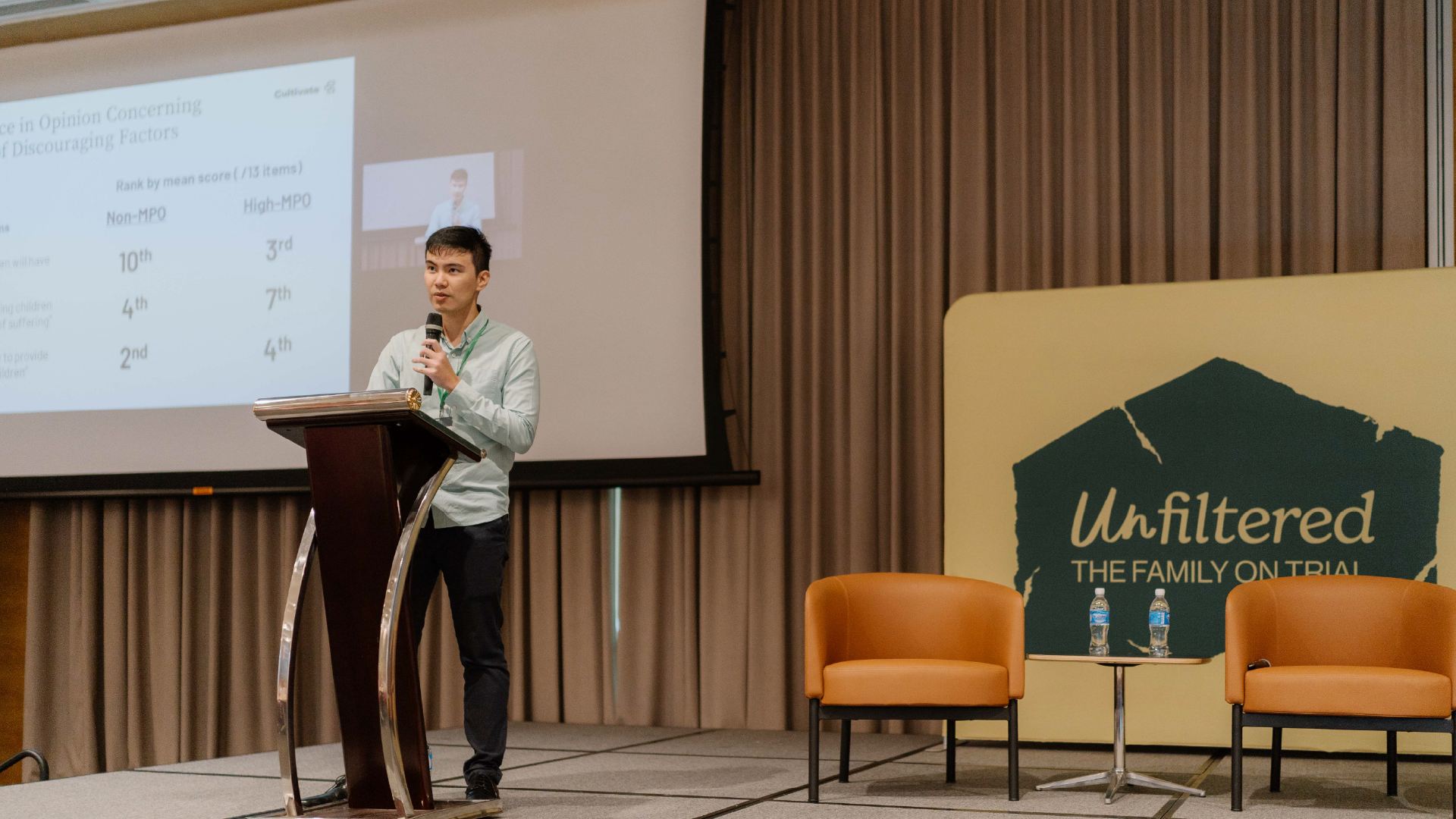In 2022, the Singapore Government repealed Section 377A of the Penal Code – which criminalised acts of “gross indecency” between males – while amending the Constitution to protect the definition of marriage and related policies from being challenged in court. Then-Prime Minister Lee Hsien Loong explained at the 2022 National Day Rally that this was to “keep what … most Singaporeans still want, and that is to retain the basic family structure of marriage between a man and a woman, within which we have and raise our children”.
Why does the Government take this position on marriage?
It seems that this position assumes marriage is (i) a commitment to permanence in an (ii) exclusive and holistic union (i.e., emotional, sexual, domestic and financial) of (iii) a man and a woman, (iv) in which procreation is naturally possible and children can be nurtured. This is “conjugal marriage”. This understanding of marriage goes beyond (i) consent between any number of parties, (ii) sexual or emotional relationships, or (iii) companionship or partnership.
Why does the state regulate and recognise marriage?
Conjugal marriage is regulated and promoted by the State through laws and policies. This includes a legal system for registration and recognition of marriages, as well as divorce and managing its consequences. Government policies support conjugal marriage with privileges, including housing (eligibility for Housing and Development Board Build-to-Order applications), tax advantages, and immigration benefits.
The Singapore government invests resources in regulating conjugal marriage due to its distinctive contribution to the common good through natural procreation and child-rearing. This is vital for long-term societal sustainability, impacting population, demographics and labour force, as well as tax revenue, economic growth, and capital inflows.
In the prevailing notion of a “stable family unit”, several assumptions are made: procreation necessitates both a man and a woman, children thrive with the guidance of both a mother and father, and the parents are dedicated to a lasting, exclusive and comprehensive partnership.
Marriage as an institution increases the likelihood of fathers committing to mothers (who statistically are common as primary caregivers due to natural childbirth), and the committed parents jointly assuming responsibility for the child. Without it, fatherlessness tends to occur, leading to documented detrimental effects such as psychological maladjustment and anti-social behaviours. Policy benefits such as housing and immigration support practical elements vital for sustaining stable family units and facilitating child-rearing.
Why not similarly regulate other kinds of relationships?
Why does the state not similarly confer legal recognition or grant privileges to (and police) other kinds of relationships (e.g. relationships between two or more people of the same sex or people who enter non-exclusive commitments)?
Conjugal marriages uniquely provide a distinct social benefit, differing from private arrangements that rely on consent and emotional bonds, akin to other social connections (e.g. cohabiting friends). Recognising these arrangements raises policy questions about allocating taxpayer funds for regulation and privileges like housing and tax breaks.
Further, recognition signals to society that such other relationships are ethically, socially and practically equivalent to conjugal marriage and thus may participate in procreation and child rearing. The policy implication would thus be to permit such other relationships to have children. However, this opens a Pandora’s box of legal, social, medical, ethical and policy issues, namely surrogacy and adoption.
The Government currently prohibits surrogacy in Singapore, citing its complex ethical, social, health, and legal implications. Empirical research and ethical considerations have led scholars to argue that surrogacy:
- poses significant medical risks to both the gestational mother and child,
- causes psychological harm by separating the child from the gestational mother,
- commodifies a woman’s body, often a financially disadvantaged foreign woman,
- commodifies children,
- reduces procreation to a transaction,
- potentially prioritises a man’s self-interest over a woman’s well-being, and
- leaves gestational mothers and children vulnerable to abuse and exploitation.
News stories highlight these issues, including celebrities changing their minds during surrogacy and surrogate mothers facing pressure to relinquish the child. The debate remains open, and research on the effects of surrogacy continues to be contested.
In terms of adoption of children by alternative social units, the Government’s present stance is against supporting same-sex adoption or planned single parenthood.
Research indicates that children benefit from both a father and a mother’s parenting, each contributing uniquely. On the other hand, the current evidence regarding the well-being of children in alternative family structures is deeply politicised. Some academics critique research suggesting no difference between same- sex and different-sex parenting as methodologically flawed, while limited evidence suggests a higher risk of adverse effects for children of same-sex parents in later years. Like the surrogacy debate, discussions around these topics are ongoing, with research efforts often marked by polarisation and politicisation.
Alternative Views
Same sex couples and LGBTQ+ (lesbian, gay, bisexual, transgender, queer, etc.) persons in other kinds of relationships would understandably feel that the policy on conjugal marriage is unequal and discriminates against them. They may thus feel like second-class citizens. It also feels unfair that married couples have certain rights which other types of relationships do not, e.g., hospital visitation and inheritance rights.
Policies which treat classes of people unequally are not necessarily legally unjustifiable. For example, men are required to serve National Service while women are not.
Certainly, the feeling of unfairness must be addressed. Our society should affirm that people have equal worth even if policies deal with categories of people unequally. Unmarried persons should not be regarded as lesser in status or worth than married couples. The policies on marriage and family simply correspond to the social good from conjugal marriage and its connection to procreation and raising children; this should not be seen as elevating married persons above others. Yet, this feeling of unfairness should be addressed by socio-cultural means.
Some LGBTQ+ advocates elsewhere have also argued that forcing LGBTQ+ relationships into a pre- existing social institution like marriage could counterproductively undermine the unique culture of LGBTQ+ relationships. Put another way, other kinds of relationships can have distinctive value amidst unequal policies. It is further suggested that recognising same sex marriage merely confers social legitimacy to one other kind of family structure but marginalises others such as singles and multiple cohabiting partners. Hence, a response is that the solution is not so much a legal and policy redefinition of marriage but acknowledging social and cultural diversity.
People in relationships outside of marriage currently have the freedom to create custom solutions for their rights and benefits. They can use tools like wills for inheritance and powers of attorney for hospital visits and decision-making. Because these relationships are not formally regulated, individuals have more flexibility in shaping their lives and relationships, such as no legal requirements or barriers for breakups. Additionally, the common law has evolved to fairly divide assets when unmarried couples separate.
Others have also argued that couples who are unable to, or choose not to, have biological children are allowed to be married, thus contradicting the policy of conjugal marriage. However, that is simply because the essential features of conjugal marriage are present in such marriages. Further, such couples may yet have children later, whether by choice or with medical assistance. Married couples who foster or adopt children can also provide the same kind of parenting environment for nurturing children. In any case, it is not justifiable to otherwise introduce an intrusive and impractical policy of probing into infertility status or choices about having children post–marriage to declare an otherwise valid marriage void.
In the debate over recognising same-sex marriage and other relationship forms, some argue that it could strengthen conjugal marriage. However, experiences in other countries suggest otherwise. According to foreign literature, same-sex couples primarily marry for three reasons: to have children, for state benefits, and to publicly commit to each other. Yet, as discussed earlier, the eligibility for state benefits is closely tied to the question of having children. In terms of public commitments, same-sex couples already engage in public ceremonies. Therefore, the key issue surrounding same-sex marriage appears to revolve around the acceptance of surrogacy and child adoption, which remains a complex and unresolved matter.
Conclusion
In conclusion, conjugal marriage is one of its own kind because of its essential connection to natural procreation and childrearing, which provides a social good. It is treated differently from other kinds of relationships ethically, socially and legally. The state’s policy on marriage would have to be assessed with reference to the distinctive nature of this social institution as well as related complex issues which are not yet settled. Other kinds of relationships and social arrangements can nonetheless thrive within the current legal and policy framework. Yet, in saying this, Singaporeans must reckon with affirming that unmarried singles and people in relationships other than marriage have an equal place in society.

Wu Ding Xian
Ding Xian is a legal officer of a non-profit where he promotes peacemaking and reconciliation as a means of resolving disputes, both domestically and internationally. When he is not busy with his work, he spends his time cooking for his wife, doing various household chores and learning about the world.


